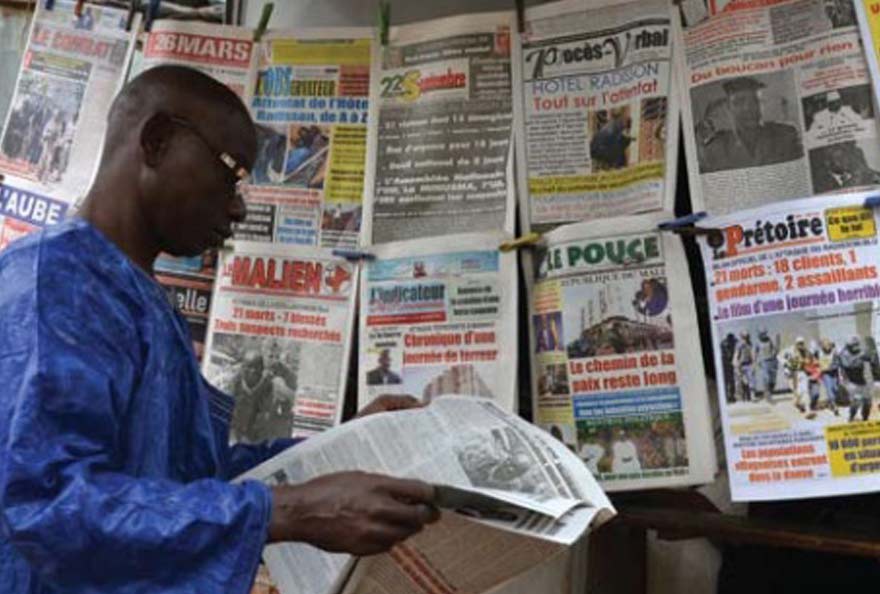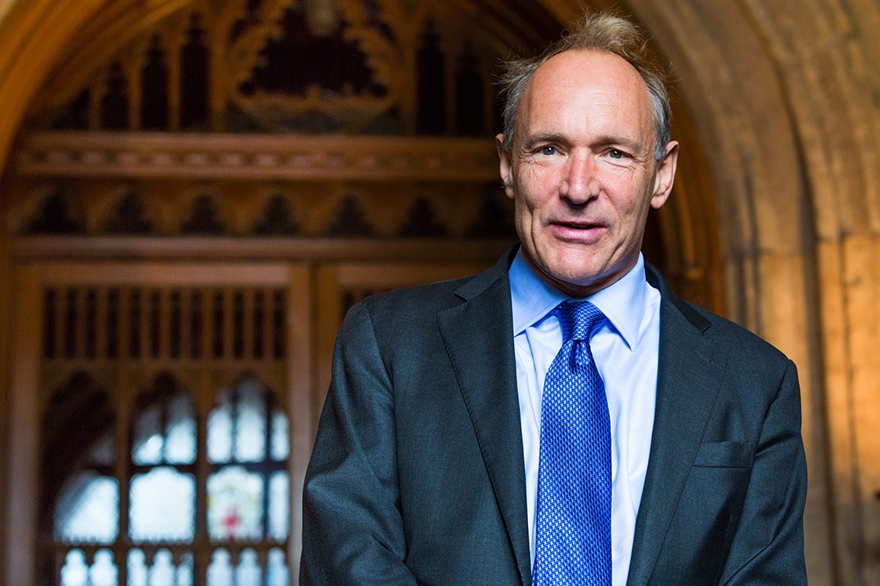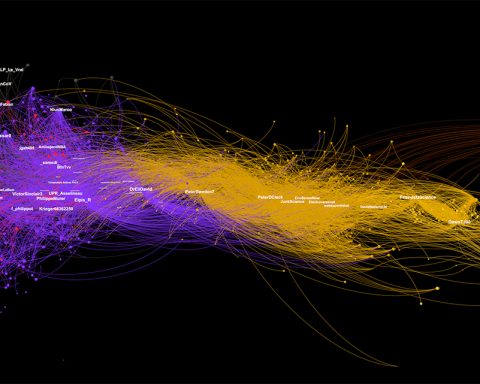In a world where violent political actions are on the rise, where there is growing misunderstanding between rich societies and societies that do not yet have access to prosperity, the official development assistance budgets of the North - which are already often on the decline - tend to be reorienting towards security issues at the expense of cultural or media cooperation. In this context, where impartial, documented and peaceful information is more necessary than ever, Fondation Hirondelle is particularly active through a multitude of courageous and humane initiatives.
In the name of God is spreading in our world society that which is most contrary to all holiness: absolute violence erected as dogma. It is the whole religious dimension, which objectively constitutes one of the components of our societies - no matter whether we individually claim it or do without it - that is thus caught in the infernal trap of identities.murderous.The generalist journalist observes the facts and reports on civil wars, attacks and executions. He tries to trace the social and religious roots. But in the daily account he gives of the state of the world, the perspective that he traces on the religious fact inevitably takes root today in violent action. Thus, in our representation of the world, hereIslam, there the West of Christian tradition, elsewhere the Buddhist monk or the animist, can become the threat and the enemy to fight.The media find themselves caught in the vicious circle of a more devious instrumentalization than the mere play of a skillful mastery of communication. To escape from this, perhaps we need to broaden the scope of our investigation, to extend our inquiry into the religious dimension of our societies,in order to take away the extremists' monopoly. Since, according to the remark of a Muslim dignitary, no war is holy except the war one wages against one's own demons.Jean-Marie Etter,Managing Director of Fondation Hirondelle
Journalism in the face of religious polarisation
Attacks in Iraq, Tunisia, Turkey, Ivory Coast, Mali, Nigeria, Pakistan, Belgium... In Asia, Africa and Europe, March 2016 was particularly marked by terrorist violence that caused more than a hundred victims, each time claimed by political-religious groups: the Islamic State, AQIM, Boko Haram, the Taliban... These attacks did not come out of nowhere: they are the translation of social fragmentation into ultimate acts. determined by extremist religious conceptions, which are all the more popular as they are widely supported financially. Thriving in particular on economic misery or the desire for revenge, they define exclusive identities that are difficult to reconcile with otherness.
What can journalism do in the face of the spread of these religious polarisations?
More than ever, this questioning questions Fondation Hirondelle, which is active in several countries directly confronted with this phenomenon in recent years (Tunisia, Burkina Faso, Mali, Niger, Ivory Coast, Central African Republic, etc.).
In 2015, Mali experienced repeated jihadist violence, culminating in the Radisson Blu attack in Bamako in November. Studio Tamani, the news programme created by Fondation Hirondelle in this country, deals with this news on a daily basis. The journalistic work developed here by Fondation Hirondelle is not limited to reporting on the attacks and their grim results. It is also a question of giving a voice to illustrate the amalgamations of which certain communities such as the Fulani are victims, or to inform about initiatives in the regions. trying to better take into account the problems of young people in distress, recruits
potential for terrorist groups. Finally, it's about organizing, both studio and live, dialogue between all components of Malian society, including between representatives of a conservative Islam and those who traditionally have a more traditional conception of Islam
of their religion.
True to the Swiss tradition of peaceful coexistence between communities that many seem to oppose, supported by Swiss diplomacy, one of whose objectives is to promote peace and consensual solutions to conflicts, Fondation Hirondelle has placed its faith in dialogue and endeavours in its media to bring actors from divided societies together for debate.
Studio Tamani: Jihadism questions society's relationship with young people
Created in 2013 by Fondation Hirondelle, Studio Tamani is a daily three-hour radio programme produced and directed in Mali. Bernard Conchon, its Media Chief, discusses how he deals with jihadist violence on a daily basis.
How does Studio Tamani report on jihadist violence in Mali?
Bernard Conchon Studio Tamani : Studio Tamani reports on jihadist attacks, committed by groups mainly linked to Al-Qaeda in the Islamic Maghreb (Aqmi), as well as the reactions of Malian society.
Recently, three events have received significant editorial support: on 20 November 2015, the attack on the Radisson Blu Hotel in Bamako, whose perpetrators - two young people in their twenties - were killed during the assault; on 27-29 February 2016, the symposium on the fight against religious radicalism organized by Sabati 2012, a movement of Muslim leaders in Mali; in March 2016, the commitment of 200 radicalized youth in the Mopti region to leave the armed groups of the Macina Liberation Front (LWF).
What springs of Jihadism have your programmes highlighted?
BC: Our broadcasts have revealed that terrorist attacks, in the Sahel as in Europe, are questioning society about its relationship with young people. For it is young people, and often very young people, who are the perpetrators.
In the region of Mopti (central Mali), radicalization appears as a social and emotional compensation that emerges as a reaction to economic and social violence suffered or felt. Brema Ely Dicko, head of the socio-anthropology department at the University of Bamako, estimates that only 1 to 2 % of young Malians involved in jihadist movements are convinced of the ideology they convey.
Last March, civil society, elected officials and religious leaders decided to take action: they persuaded 200 young jihadists, most of them under the influence of the LWF, to lay down their arms and take the road to rehabilitation.
Through the prism of Studio Tamani's programmes, how is the dialogue on jihadist violence evolving in Mali?
BC: A few months ago, all we were talking about was terrorist actions, recruitment and security issues. Today, the reading of the terrorist act is no longer limited to these aspects alone: it is a challenge to the political debate. "We need to engage in discussions with Malian jihadists. In return, they're going to help Mali get rid of jihadists from elsewhere, says the Aménokal (chief) of the Tuareg tribe of Ifoghas, Mohamed Ag Intalla, also deputy of Kidal (North-East Mali) and member of the presidential majority.
This position has also been supported in our programmes by leaders of the Platform and Coordination of the Movements of Azawad, two structures essentially regrouping organizations that have long been opposed in North Mali.
Studio Kalangou, birth of an independent media in Niger
Since January, Studio Kalangou has been producing a daily newspaper and a "forum" that invites Nigerien society to dialogue. This radio device is particularly useful in the context of the electoral sequence of the first half of 2016.

Mariama Diallo, presenter of Studio Kalangou's French-language newspaper. Photo: © Pauline Bend/Fondation Hirondelle
On 18 January 2016, Studio Kalangou broadcast its first programmes in Niger (the kalangou is a small traditional drum, popular in the Sahel region). Launched in September 2015 by Fondation Hirondelle, this radio production studio responds to a three-fold logic: to be a reliable source of information, to be a tool for consolidating the rule of law and national dialogue, to be a "source of information" for the people of Niger, and to be a "source" for the people of Niger. actor in the 2016 electoral process (coupled presidential and legislative elections in February-March, local elections in May). Based in Niamey and run by fifteen or so Nigerien journalists trained by the Foundation, Studio Kalangou produces an hour and a half of programmes every day: a 15-minute newspaper in three languages (French, Hausa, Zarma) and a 45-minute "forum" in French where inhabitants, experts and actors on a given topic are invited to engage in dialogue. From May 2016, Studio Kalangou will also produce programmes in Tamasheq and Peulh, in order to be better heard by all the inhabitants of Niger. The programmes are broadcast by a network of ten partner radio stations, associative or private, located in Niamey and in the regional capitals. from Niger.
The electoral campaign that ended on 20 March 2016, the day of the second round of the presidential election, gave rise to forums where each candidate came to express himself, and where the Independent National Electoral Commission (CENI) answered the questions of the editorial staff: Who can vote? Where to vote? How to vote?
Kandindi: a thematic audiovisual production in DR Congo
Fondation Hirondelle's new media agency in DR Congo intends to take a step back from the news in order to better document the construction of the country.
Created in September 2015 by the Foundation in Kinshasa, Kandindi ("swallow" in Tshiluba) is a new audiovisual production agency under Congolese law.
Its editorial ambition is twofold: to open up a field of thematic information, complementary to current events, with a view to documenting the major issues at stake in the construction of the Democratic Republic of Congo; to work with the private sector, from companies to NGOs, to promote its initiatives in the field of social and environmental responsibility (SER) and its contributions to the building of the country among Congolese youth.
The programmes produced by Kandindi, whether they are long programmes or recorded debates, are broadcast on the network of 90 community radio stations coordinated by Fondation Hirondelle in DR Congo, representing an audience of about 35 million people. They are also broadcast on the following networks social. While Monusco no longer wishes to use the services of Fondation Hirondelle in the editorial management of Radio Okapi, the Foundation has kept a team of about ten people in Kinshasa. With Hirondelle Communication, an agency producing general interest editorial content for institutional clients, the Kandindi agency intends to become the second pillar of the Foundation's long-term operations in DR Congo.
News from the Fondation Hirondelle June 2016













